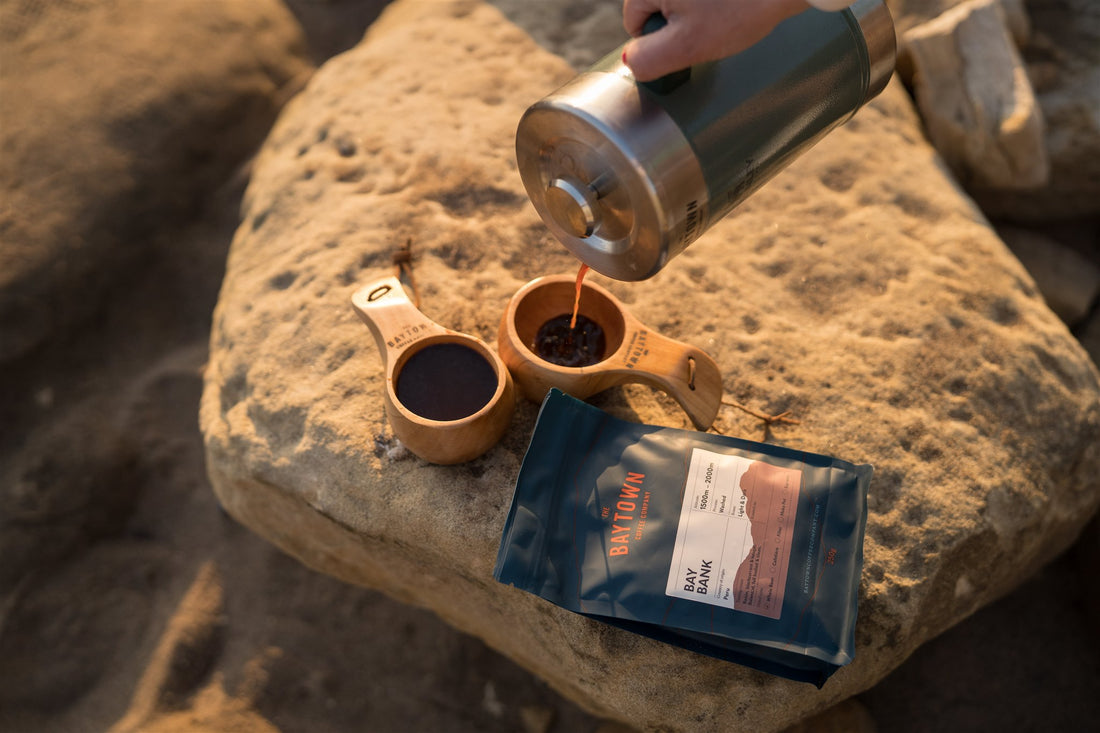The story behind our Baytown Kuksa cups is one steeped in a love for Scandinavian aesthetics and a serendipitous encounter during a family trip to Finland. Originating from Sweden, my admiration for these quaint cups, traditionally used by the Sami for various purposes, led us to embark on our own journey of crafting and branding these delightful vessels.

Kuksa cups, integral to the Sami handicraft of Duodji, are more than just containers; they embody a rich tradition of durability and multifunctionality. Once used by the Sami for personal cups and berry gathering, these wooden wonders are revered for their strength and charm. The Sami tradition dictates that a kuksa should never be washed with dishwashing liquid, preserving its lucky side, and instead should be rinsed in a stream or a lake – a practice we uphold in our Baytown Kuksa cups.

The inspiration for our venture struck during a bitterly cold and dark family skiing trip in Finland. Seeking refuge in an enchanting hut, we discovered the magical world of kuksa cups hanging on the walls, each bearing the names of those who visited. The warmth of hot glogg and berry juice served in these cups added to the enchantment, leaving an indelible mark on our memories.

Motivated by this experience, we decided to bring the magic of kuksa cups to Baytown. We sourced wooden cups and took on the task of branding them ourselves. These lightweight and durable beauties, adorned with the Baytown emblem, make for the perfect companion on outdoor adventures.
My personal connection with the kuksa cups deepened during an Arctic expedition, where the genius of these little cups truly shone during pit stops – offering a warm respite in the freezing temperatures.

The ability to hang it from your bag is not just a space-saving feature but also adds to the accessibility and quick availability of the cup during your journey.
While metal camping cups bring down the temperature of your drink swiftly, kuksa cups, crafted from wood, retain warmth and prevent freeze burn, making them an essential addition to any outdoor enthusiast's gear. It's not just a cup; it's a companion that seamlessly integrates into your adventures, ensuring that you can savor every moment without compromising on practicality or style.

Indeed, while a kuksa is more robust than a typical porcelain cup due to its wooden composition, it is not impervious to damage. Like any item, it can crack or break under certain circumstances.
To ensure the longevity of your kuksa and prevent it from cracking, it is crucial to adhere to proper care guidelines:
- Avoid Dishwashers: Never put your kuksa in the dishwasher. The high-pressure water and temperature can compromise the wood and lead to cracks.
- Skip Boiling Water: Refrain from washing your kuksa with boiling water, as extreme temperatures can negatively impact the wood and make it susceptible to cracking.
- Limit Water Exposure: Do not soak your kuksa in water for extended periods. Prolonged exposure to moisture can compromise the wood and affect its structural integrity.
- Mind the Washing-Up Liquid: Traditional washing-up liquids contain chemicals that may harm the wood. Instead, opt for a gentle, natural cleanser to maintain the kuksa's quality.
- Avoid Abrasive Sponges: Steer clear of using abrasive sponges or harsh scrubbers, as they can damage the wood's surface and increase the risk of cracking.
By following these guidelines and treating your kuksa with care, you can enjoy its charm and functionality while minimizing the risk of damage. Remember, a little attentiveness goes a long way in preserving the beauty and durability of your kuksa.
